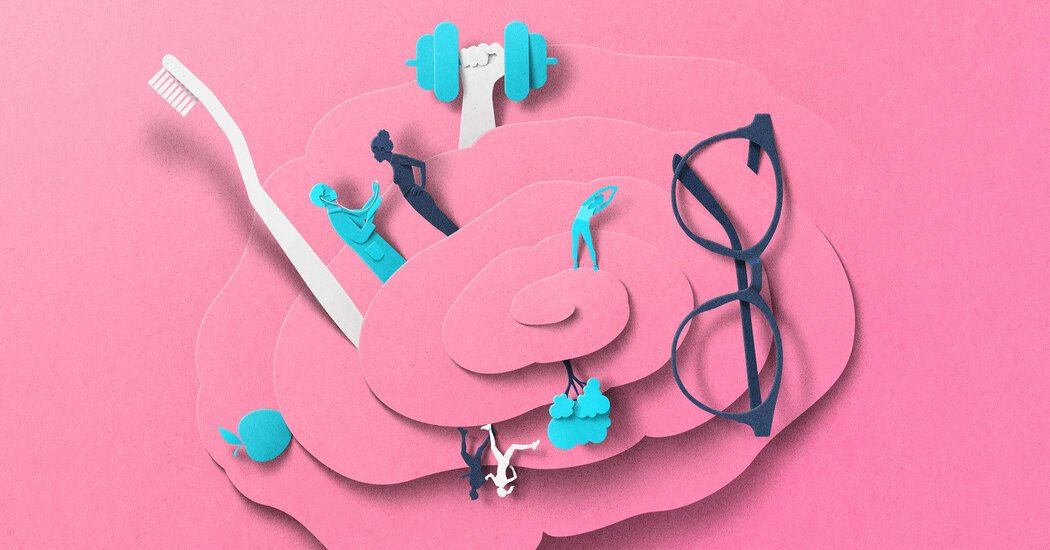Easy everyday habits can help keep you sharp. And it’s never too late to start them.
Small tweaks to your daily routine can go a long way toward protecting your body’s control center and preventing cognitive decline down the road. In fact, scientists believe that as many as 45 percent of dementia cases could be delayed or prevented with help from some simple, sometimes surprising, changes in behavior.
It’s never too early or too late to start, but time is of the essence when it comes to building your brain’s defenses, especially since it’s generally impossible to reverse brain damage once it’s happened, said Dr. Eva Feldman, a professor of neurology at the University of Michigan’s Neuroscience Institute.
We asked eight neurologists and neuroscientists to share their best tips.
1. Wear a helmet.
Physically protecting your head is the single most important step you can take to safeguard your brain, experts said. Recurrent head trauma from traumatic brain injuries and concussions can lead to chronic traumatic encephalopathy (C.T.E.), which can worsen cognition overall, and in some cases cause dementia.
Wearing a helmet during activities like biking and skiing can significantly reduce the risk of injury, Dr. Feldman said. Motorcyclists should also always wear helmets, even if state laws don’t require them.
2. Put in earplugs when you’re mowing the lawn.
Older people with hearing loss have a greater risk for developing dementia. Scientists think it may be because the part of the brain that processes hearing is close to the part responsible for memory, or it could be a result of atrophy; people who have hearing loss tend to withdraw from social activities that could keep their minds engaged.
To protect your brain’s ability to process sensory signals, use earplugs or noise-protection earmuffs when you’re around loud sounds, said Dr. Elizabeth Bevins, a neurologist at UC San Diego Health. In addition, people over 50, and anyone frequently exposed to loud noises, should get a hearing test every one to three years, she said.
